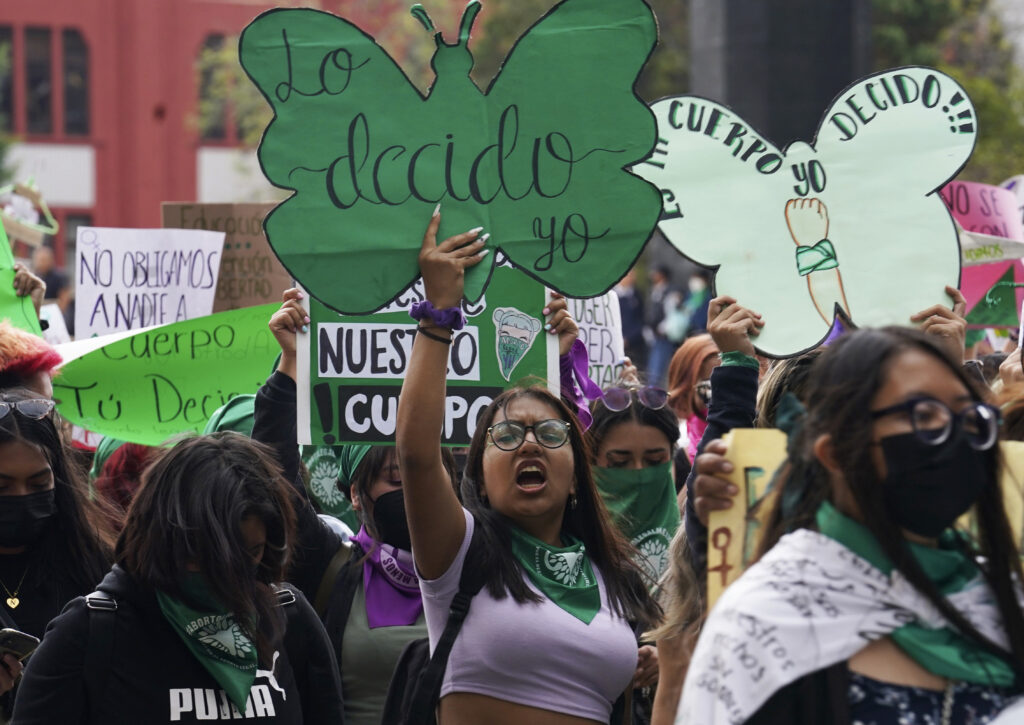
MEXICO CITY (AP) — A Mexican Supreme Court decision to end the federal ban on abortion extended a regional trend of increasing access to the procedure, but left in place a patchwork of varying state restrictions.
The high court on Wednesday threw out all federal criminal penalties for abortion in a ruling that will require the federal public health service to offer the lethal procedure to anyone who requests it.
That will mean access for millions of Mexicans since the social security service and other federal institutions provide health care to most people who work in the formal economy.
Some 20 Mexican states, however, still criminalize abortion. Those laws were not affected by the Supreme Court ruling, but pro-choice advocates will likely ask state judges to follow suit.
“This is just the latest heartbreaking example of Latin America’s turn away from life,” said Brent Leatherwood, president of the Ethics & Religious Liberty Commission, in written comments for Baptist Press. “In contrast to the prolife gains we have seen here in America, our neighbors to the south, including Mexico, have been increasingly influenced by pro-abortion forces. While this decision is federal in nature, the individual states of Mexico have an opportunity to continue standing for life in their state laws.”
Abortions are not widely prosecuted as a crime in Mexico, but many doctors refuse to provide them, citing the law.
Sen. Olga Sánchez Cordero, a former Supreme Court justice, applauded the ruling, saying on X (formerly Twitter) that it represented an advance toward “a more just society in which the rights of all are respected.” She called on Mexico’s Congress to pass legislation in response.
But others in the highly religious country decried the decision. Irma Barrientos, director of the Civil Association for the Rights of the Conceived, said opponents will continue the fight against expanded abortion access.
“We’re not going to stop,” Barrientos said. “Let’s remember what happened in the United States. After 40 years, the Supreme Court reversed its abortion decision, and we’re not going to stop until Mexico guarantees the right to life from the moment of conception.”
Across Latin America, countries have made moves to lift abortion restrictions in recent years, a trend often referred to as a “green wave,” in reference to the green bandanas carried by women protesting for abortion rights in the region.
In its ruling, the Mexican court said on X that “the legal system that criminalized abortion” in federal law was unconstitutional because it “violates the human rights of women and people with the ability to gestate.”
The decision came two years after the court ruled that abortion was not a crime in one northern state. That decision set off a slow state-by-state process of decriminalizing it.
Last week, the central state of Aguascalientes became the 12th to drop criminal penalties.
For now, the ruling does not mean that every Mexican woman will be able to seek an abortion immediately, explained Fernanda Díaz de León, sub-director and legal expert for a pro-choice group.
What it does do — in theory — is obligate federal agencies to provide coverage for the procedure.
It also allows women with formal employment who are part of the social security system and government employees to seek abortions in federal institutions in states where the procedure is still criminalized, Díaz de León said.
Mexico City was the first Mexican jurisdiction to decriminalize abortion 16 years ago.
After decades of work by activists across the region, the trend picked up speed in Argentina, which in 2020 legalized the procedure. In 2022, Colombia, a highly conservative country, did the same.
“All of us should join in prayer for those in Mexico who are committed to protecting life to ensure that they have the strength to withstand this challenge that is nothing less than an assault on human dignity,” Leatherwood said.
___
Associated Press Writer Geoff Mulvihill in Cherry Hill, New Jersey contributed to this report.















